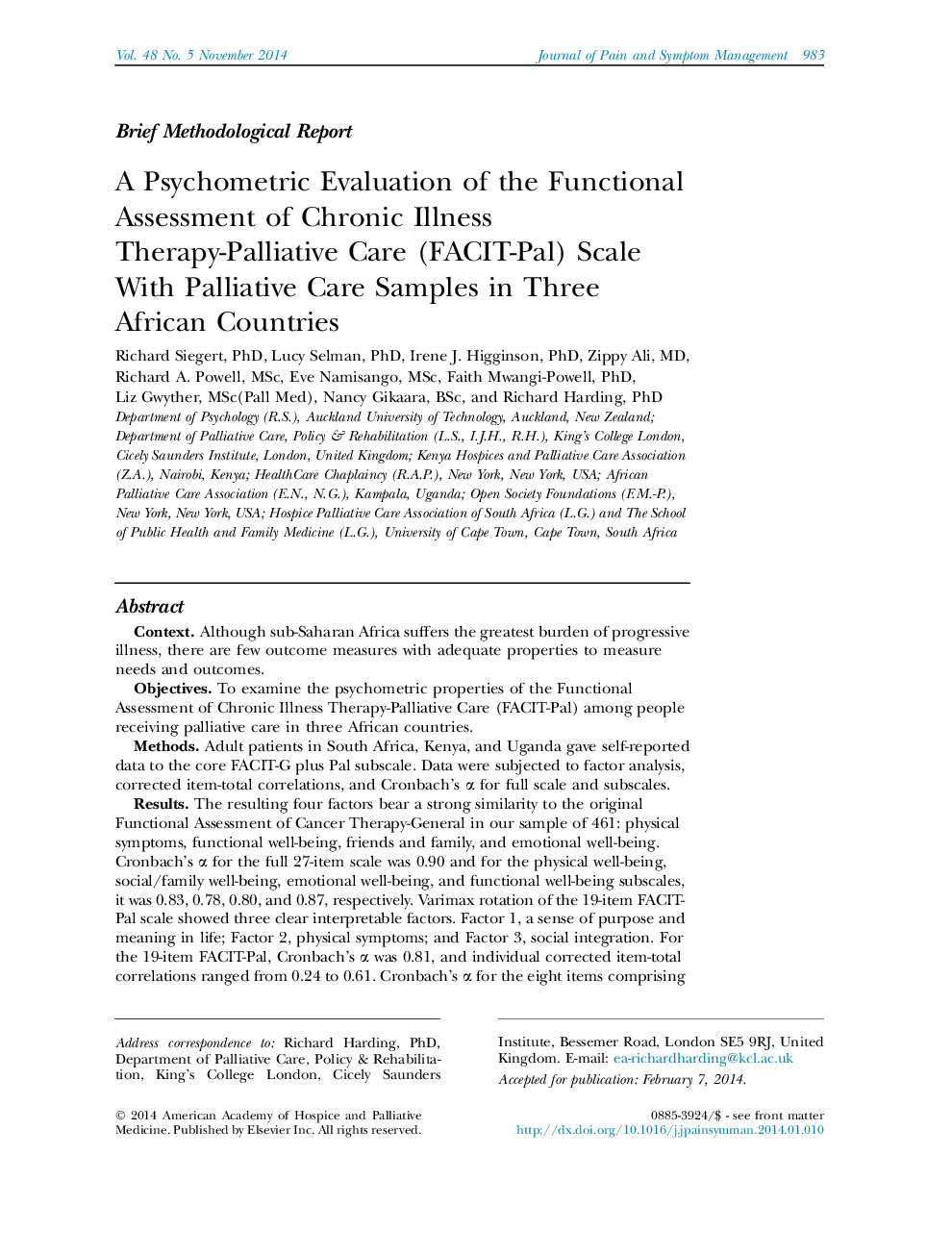| Article ID | Journal | Published Year | Pages | File Type |
|---|---|---|---|---|
| 2729876 | Journal of Pain and Symptom Management | 2014 | 9 Pages |
ContextAlthough sub-Saharan Africa suffers the greatest burden of progressive illness, there are few outcome measures with adequate properties to measure needs and outcomes.ObjectivesTo examine the psychometric properties of the Functional Assessment of Chronic Illness Therapy-Palliative Care (FACIT-Pal) among people receiving palliative care in three African countries.MethodsAdult patients in South Africa, Kenya, and Uganda gave self-reported data to the core FACIT-G plus Pal subscale. Data were subjected to factor analysis, corrected item-total correlations, and Cronbach's α for full scale and subscales.ResultsThe resulting four factors bear a strong similarity to the original Functional Assessment of Cancer Therapy-General in our sample of 461: physical symptoms, functional well-being, friends and family, and emotional well-being. Cronbach's α for the full 27-item scale was 0.90 and for the physical well-being, social/family well-being, emotional well-being, and functional well-being subscales, it was 0.83, 0.78, 0.80, and 0.87, respectively. Varimax rotation of the 19-item FACIT-Pal scale showed three clear interpretable factors. Factor 1, a sense of purpose and meaning in life; Factor 2, physical symptoms; and Factor 3, social integration. For the 19-item FACIT-Pal, Cronbach's α was 0.81, and individual corrected item-total correlations ranged from 0.24 to 0.61. Cronbach's α for the eight items comprising Factor 1 (meaning in life) was 0.83. For the other two factors, it was 0.70 (physical symptoms, six items) and 0.68 (social integration, three items).ConclusionThe FACIT-Pal is a reliable multidimensional scale for people with life-limiting incurable diseases in sub-Saharan Africa, and the observed factors are interpretable and clinically meaningful.
